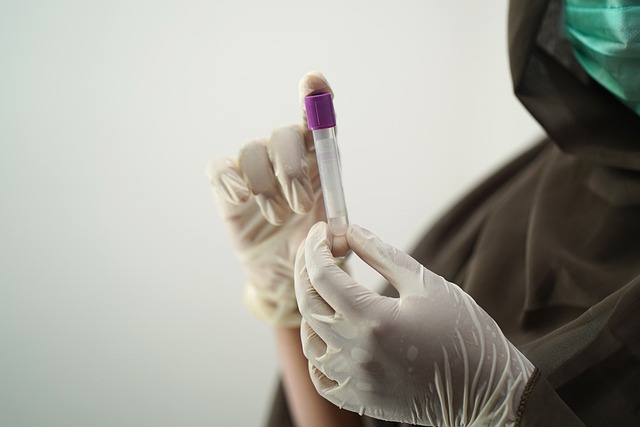The article outlines the essential role of cholesterol in cell membranes and the production of hormones, bile acids, and vitamin D, while highlighting the risks of high cholesterol levels, such as arterial plaque buildup which can lead to heart attacks and strokes. It advocates for regular monitoring of cholesterol through the UK Iron Blood Test, which provides a comprehensive analysis of total cholesterol, HDL ('good' cholesterol), and LDL ('bad' cholesterol) levels. The test is crucial for early detection and management of cardiovascular health risks, with HDL acting as a cholesterol scavenger and LDL contributing to plaque buildup. In the UK, such tests are integral to preventive healthcare, supported by the NHS, and are available through General Practitioners or private healthcare providers without a GP referral. These services offer convenience via online registration and sample collection at local clinics or homes, ensuring individuals receive prompt and professional guidance to interpret test results and develop personalized management plans with their healthcare provider. The UK Iron Blood Test thus plays a pivotal role in maintaining cardiovascular health by enabling early identification of cholesterol and iron abnormalities, potentially reducing the incidence of cardiovascular disease.
Cholesterol management is a cornerstone of cardiovascular health, and understanding its role is essential for maintaining overall well-being. In the UK, blood tests are the primary method for measuring cholesterol levels, offering insight into one’s heart health risk profile. This article delves into the significance of these tests, guiding readers through the process of accessing a UK Iron Blood Test for a comprehensive assessment of their cholesterol levels. Discover how this simple yet vital diagnostic tool can be your first line of defense against potential cardiovascular issues.
- Understanding Cholesterol and Its Importance in Health Maintenance
- The Role of Blood Tests in Monitoring Cholesterol Levels in the UK
- How to Access a UK Iron Blood Test for Comprehensive Cholesterol Assessment
Understanding Cholesterol and Its Importance in Health Maintenance

Cholesterol is a waxy, fat-like substance that is an integral component of cell membranes and is essential for the production of hormones, bile acids, and vitamin D. It circulates in the bloodstream and is vital for numerous bodily functions. In the context of health maintenance, understanding cholesterol levels is paramount as high cholesterol can lead to plaque buildup in arteries, increasing the risk of heart attacks and strokes. The UK Iron Blood Test, often sought after for its comprehensive analysis of various blood parameters including cholesterol, provides individuals with insights into their cardiovascular health. This test measures total cholesterol, high-density lipoprotein (HDL) or ‘good’ cholesterol, and low-density lipoprotein (LDL) or ‘bad’ cholesterol. HDL cholesterol helps to remove other forms of cholesterol from your bloodstream, effectively acting as a ‘scavenger’ that carries cholesterol away from the arteries and back to the liver for breakdown. Conversely, LDL cholesterol contributes to plaque buildup, which can narrow the arteries and make them harder, increasing the likelihood of heart disease and related health issues. Regular monitoring of cholesterol levels, facilitated by tests like the UK Iron Blood Test, allows for timely intervention and management of risk factors associated with cardiovascular diseases, underscoring its importance in maintaining overall health.
The Role of Blood Tests in Monitoring Cholesterol Levels in the UK

In the United Kingdom, monitoring cholesterol levels is a crucial aspect of maintaining cardiovascular health. Blood tests, specifically those that measure total cholesterol, high-density lipoprotein (HDL) cholesterol, and low-density lipoprotein (LDL) cholesterol, are pivotal in this process. These tests provide comprehensive insights into an individual’s lipid profile, enabling healthcare providers to assess the risk of developing atherosclerotic cardiovascular disease. The UK Iron Blood Test, which often includes cholesterol measurements, is a non-invasive diagnostic tool that has become increasingly accessible. It allows for the early detection and management of hypercholesterolemia, a condition characterised by elevated LDL cholesterol in the bloodstream. Regular monitoring through these tests is essential for individuals at risk or those already diagnosed with cardiovascular conditions, as they aid in the tailoring of dietary recommendations, lifestyle modifications, and treatment plans to maintain optimal lipid levels and safeguard heart health within the UK population.
Furthermore, the integration of blood tests into routine health checks has been instrumental in public health strategies across the UK. These tests are not only used for individuals with existing cardiovascular disease or risk factors but are also recommended as part of a preventive healthcare approach. The National Health Service (NHS) in the UK provides guidance and access to these tests, emphasising their importance in the early detection of cholesterol-related issues. By identifying those with high cholesterol levels, interventions can be implemented at an earlier stage to reduce the risk of heart attacks and strokes, thereby contributing to a lower incidence of cardiovascular disease nationwide.
How to Access a UK Iron Blood Test for Comprehensive Cholesterol Assessment

For individuals seeking a comprehensive evaluation of their cholesterol levels, including iron status, in the United Kingdom, accessing a UK Iron Blood Test is a straightforward process. These tests are designed to provide a detailed assessment of total cholesterol, HDL (high-density lipoprotein) cholesterol, LDL (low-density lipoprotein) cholesterol, triglycerides, and iron parameters such as ferritin, transferrin saturation, and haemoglobin. To initiate the process, one can simply consult with a General Practitioner (GP), who can order the test based on individual health history and risk factors. Alternatively, private healthcare providers and specialized diagnostic services offer these tests without the need for a GP referral, often with quicker turnaround times for results. These services can be accessed through various channels, including online platforms where one can register, submit a blood sample at a local clinic or home, and receive professional guidance throughout the process. It is advisable to discuss the results with a healthcare provider to understand the implications of one’s cholesterol levels and iron status and to develop an appropriate management plan if necessary.
Regular monitoring of cholesterol levels through simple blood tests is a pivotal aspect of maintaining cardiovascular health in the UK. A UK Iron Blood Test, for instance, offers a comprehensive assessment that extends beyond iron levels, providing insights into overall lipid profiles, including cholesterol. By understanding the significance of these tests and knowing how to access them, individuals can proactively manage their health risks, thereby reducing the likelihood of developing heart disease or experiencing a stroke. In conclusion, the utility of blood tests in monitoring cholesterol levels is undeniable, offering a non-invasive and effective means for early detection and prevention of potential health issues.
